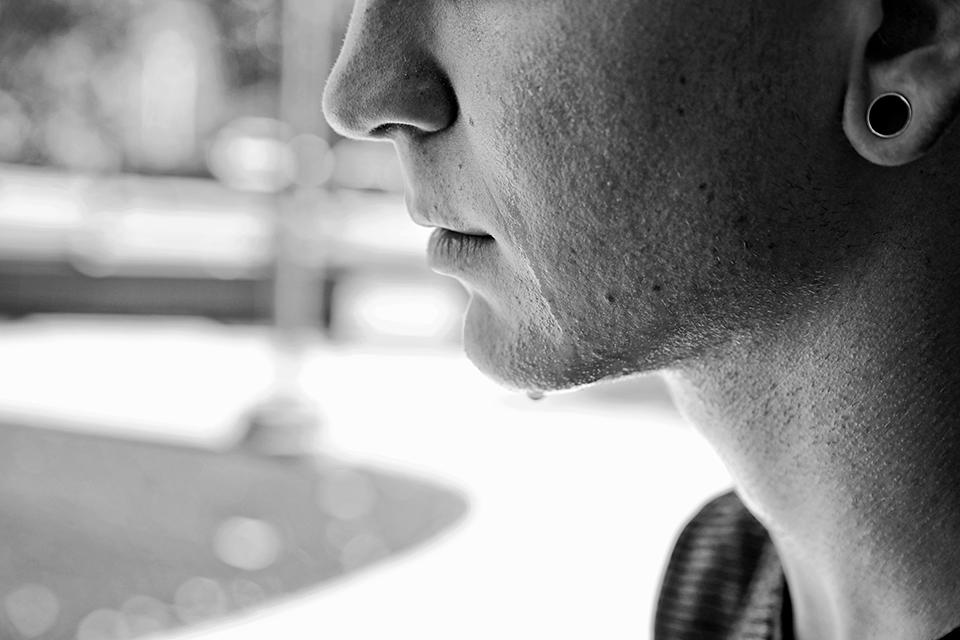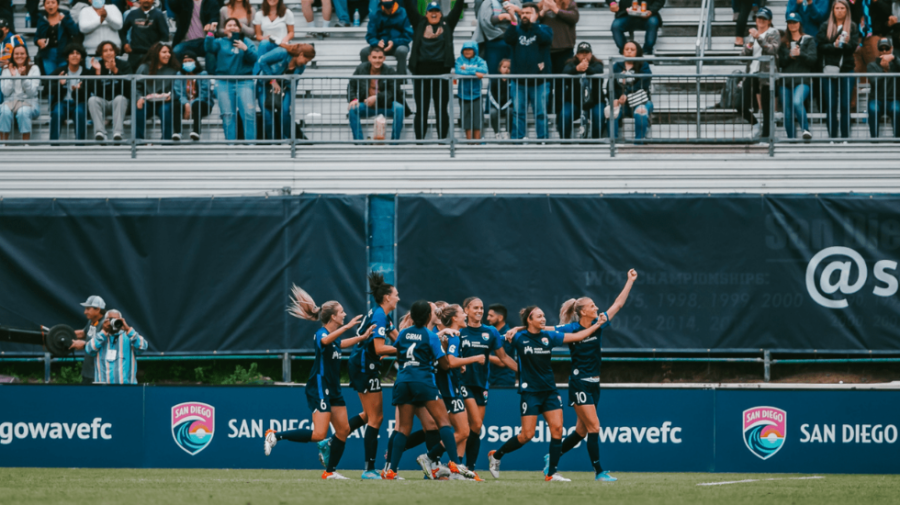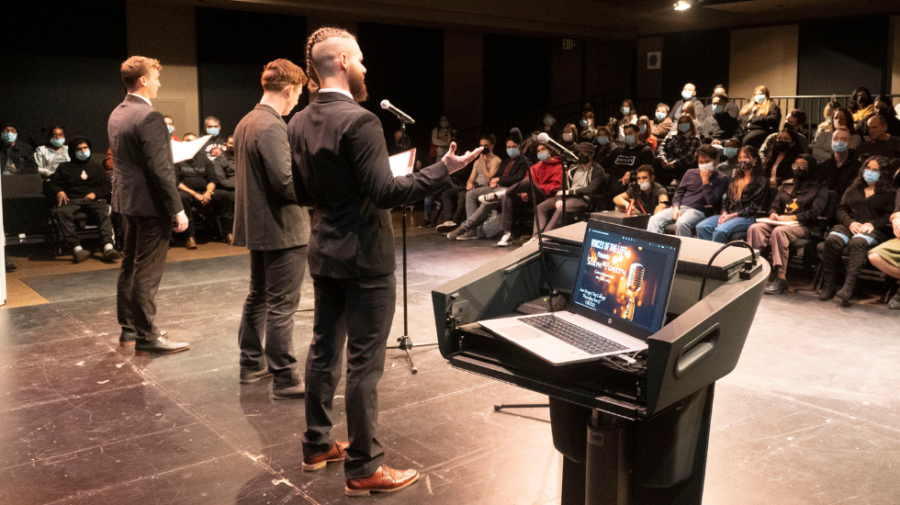The U.S. has changed greatly since 1929, when the FBI
defined rape as “The carnal knowledge of a female, forcibly and against her
will,” Ms. Magazine reported in 2011.
Today there is a new definition of rape from the FBI: “The penetration, no matter how slight, of the vagina or anus with any body part or object, or oral penetration by a sex organ of another person, without the consent of the victim.”
This definition, established in 2012, is inclusive of all sexual acts committed without consent that have victimized men, women and children for centuries.
Rape is a fact, a statistic, a crime, a felony, a physical violation of a person’s body without their expressed consent. It violates the psyche, the spirit, the emotions. It is not specific to age, social status, economic class or gender.
Rape statistics and San Diego colleges
According to the Center for Community Solutions of San Diego, 77 percent of rapes are committed by someone the victim knows. According to the same study, only between 16 to 28 percent of rapes are reported.
The Automated Regional Justice Information System website reports there were 316 rapes within San Diego city limits between January and December 2013. Twenty-two rapes of the total reported took place in the four neighborhoods where each of the San Diego Community Colleges are located: 15 in East Village (San Diego City College); two in Clairemont Mesa East (Mesa College); six in Mountain View (ECC); five in Mira Mesa (Miramar College).
San Diego County has five campuses with on-campus housing: San Diego State University, University of California, San Diego, and California State University, San Marcos, all of which are public; and Point Loma Nazarene University and University of San Diego, which are private. The most recent numbers of rapes reported for each of these campuses, not including San Marcos, which is in North County, were for the year 2012. UCSD, PLNU and USD each reported one case of rape, while SDSU reported a total of 30 rapes.
Sgt. Jordan Mirakian of the City College Campus Police has been an officer for 16 years. He served five of those years at San Diego State University. “That’s where a majority of my exposure to sexual assault investigations occurred,” he said. “It’s a college campus where students live on or around the campus in dormitory or residence hall style living, alcohol and drugs are involved … and you have young people who have lived away from home for the first time. Some of them are quite impressionable, maybe not as street savvy and they get in situations that sometimes are beyond their control.”
Marakian explained an element of crime known as opportunity. The typical community college student is a commuter. At community colleges, there are usually people about and most of the campuses are well lit, thus reducing opportunity, but it does not prevent rape if the intent (another element of crime) is present.
What rape does to the victim
A victim of rape experiences what may be the most traumatic time in their life. The victim is left with a combination of any and/or all feelings of uncleanliness, shame, fear, uncertainty about whether to report and/or who to tell, physical illness, confusion, self loathing, self blaming and panic.
“Probably the most common mental health issues that we see for people who are survivors of sexual assault is post-traumatic stress, and we use the term post-traumatic stress instead of post traumatic stress disorder … we like to say that someone is having stress versus they have a disorder,” said Abigail Burd, a licensed clinical social worker and adjunct counselor at City College’s Mental Health Counseling Center.
How to report rape
The San Diego Police Department Sex Crimes Unit investigates reports of rape. The four kinds of rape most reported in San Diego are rape of someone mentally incapacitated, forced rape, rape of someone intoxicated or under the influence of a controlled substance and rape of someone unconscious.
Most reports of rape are delayed due to feelings fear, shame, embarrassment and uncertainty of what to do.
“Victims have a variety of ways to report that they’ve been victims of rape,” said Det. Sgt. Mike Holden of the San Diego Police Department Sex Crimes Unit. Victims can report confidentially to the Center for Community Services at (858) 272-5777 or the San Diego County Domestic Violence Hotline at (888) 385-4657. Both options do not report to the police.
Another option is to call the police directly at their non-emergency number (619) 531-2000, or victims may call 911 if a rape or any sexual assault or any other crime is in progress. Victims may also report to any individual they trust.
When a rape is reported, an officer is dispatched to interview the victim. If the rape occurred within 72 hours of victim reporting it, and with their consent, an officer may escort the victim to a facility to receive a sexual assault forensic exam. A victim’s advocate provided by the Center for Community Solutions of San Diego may be present for moral support and to explain to the victim their rights, per Marsy’s Law.
Once the evidence is collected, it’s impounded and processed for the suspect’s DNA, which is entered into the national Combined DNA Index System. A detective from the Sex Crimes Unit is assigned to the victim within two or three days of the initial report.
Holden explained: “The San Diego Police Department investigates with open minds. Our job is to investigate these sexual assault cases and determine the facts surrounding the sexual assault. We’ll document those facts in our reports and forward our investigative case to the district attorney’s office to review. Our cases are victim driven. We rely on the victim to assist us in the investigation. We expect them to be an active party.” If the victim chooses not to continue, the case is deactivated. “We’re gonna respect their wishes. It allows them control of the investigation,” he said.
The suspect is charged, booked into jail, the investigator’s report is presented to the district attorney and they compile the charges that apply to the case. If the suspect is convicted, they are also registered as a sex offender into the National Sex Offender Public Registry.
Students at City College may also report to campus police, Student Health Services in A-116, or Mental Health Counseling in A-221. If reporting to Campus Police, they will take the report, then they send it over to the Sex Crimes Unit and it follows the same process as above.
If a student reports to Student Health Services, they will be extensively educated about sexually transmitted diseases, HIV and the symptoms of PTSD. The victim would receive a thorough workup, but Student Health Services cannot perform a SART exam due to a stringent chain of command of evidence in rape cases. Student Health Services would give the victim the option to have the exam performed and then the choice to go to Mercy Hospital or UCSD Medical Center.
“It’s not that we can’t do anything, but we cannot do the rape kit. We are here to support and minimize this incredibly traumatic event that happened,” said Dotti Cordell, director of the campus clinic.
Kristen Cole, Ph.D., is a clinical psychologist and is a professor of psychology at City College. She has had the experience of working with rape victims, and via email, she said: “As a clinical psychologist specializing in trauma recovery, I have treated many sexual assault and rape survivors. They are some of the most resilient individuals I have ever met. The ultimate goal of recovery is to move from surviving to thriving.”
Cole teaches a Human Sexual Behavior class on campus and each semester she emphasizes to her students the importance of tolerance, respect and acceptance.
Should a student report to staff or faculty, Cole advised being supportive and calm; to ask the student what their needs are; refer them to Mental Health Services, Student Health Services and/or campus police and offer to walk the student to wherever they need to go either after class or during a class break. “In the future, I hope to see City College offer faculty and staff trainings on trauma-informed care and the development of a gender equity center on campus,” Cole said.
Resources for rape victims
“We have a fully staffed 24/7 law enforcement agency; 365 days a year, 24 hours a day, we have police officers; we all go to the same academy, we all have the same training, we’re all the same,” Mirakian said about the City College Police Station and Campus Police in general.
When a suspect is arrested, they are read Miranda rights. Cynthia Charlebois, chief of the Victim Services Unit of the San Diego County District Attorney’s Office, said “victims do have rights.” The San Diego County District Attorney produces and provides the Victims’ Bill of Rights cards which also include a complete list of law enforcement contact information for San Diego County.
Marsy’s Law is the Victims’ Bill of Rights, 17 in all, and was passed Nov. 4, 2008, as Proposition 9 in California. Law enforcement agents are encouraged to give the pamphlet to all victims of crime when they are dispatched to initially interview victims.
Charlebois explained its Victim Services Division has three units, including a unit of victim advocates. The unit receives a copy of a crime report from any law enforcement agency within 48-72 hours, thus alerting victim advocates who then notify the victim offering their support. The other two units are of paralegals. Checks and balances are always at work in this division.
Moral support, emergency relocation, mental health referrals, crime scene cleanup and possible victim compensation are some of the services offered they offer, a hundred percent funded by offenders’ fines rather than tax dollars.
The Victim Services Division has collaborative agreements in the community in order to collectively best serve the needs of each victim they serve, Charlebois explained.
Prosecution of offenders is what attorneys do. It’s about prosecution and the defense each trying to win a case “… And this is the beauty of this program, because we’re all about the victim,” Charlebois said. No matter whether an arrest is made or if there is a conviction, as long as a victim is identified in a police report, victim advocates are available.
Resources
San Diego City College Student Health Services: (619) 388-3450
San Diego City College Mental Health Counseling: (619) 388-3539
Center for Community Solutions San Diego 24-hour bilingual hotline: (888) 385-4657
Joyful Heart Foundation: joyfulheartfoundation.org
For domestic violence and sexual abuse: NoMore.org
Rape Abuse & Incest National Network: RAINN.org
San Diego City College Campus Police: police.sdccd.edu/index.cfm
Jeanne Clery Act: clerycenter.org/summary-jeanne-clery-act
San Diego County District Attorney: sdcda.org/helping/index.html
Rape culture article: buzzfeed.com/ryanhatesthis/what-is-rape-culture
Rape Aggression Defense: rad-systems.com








